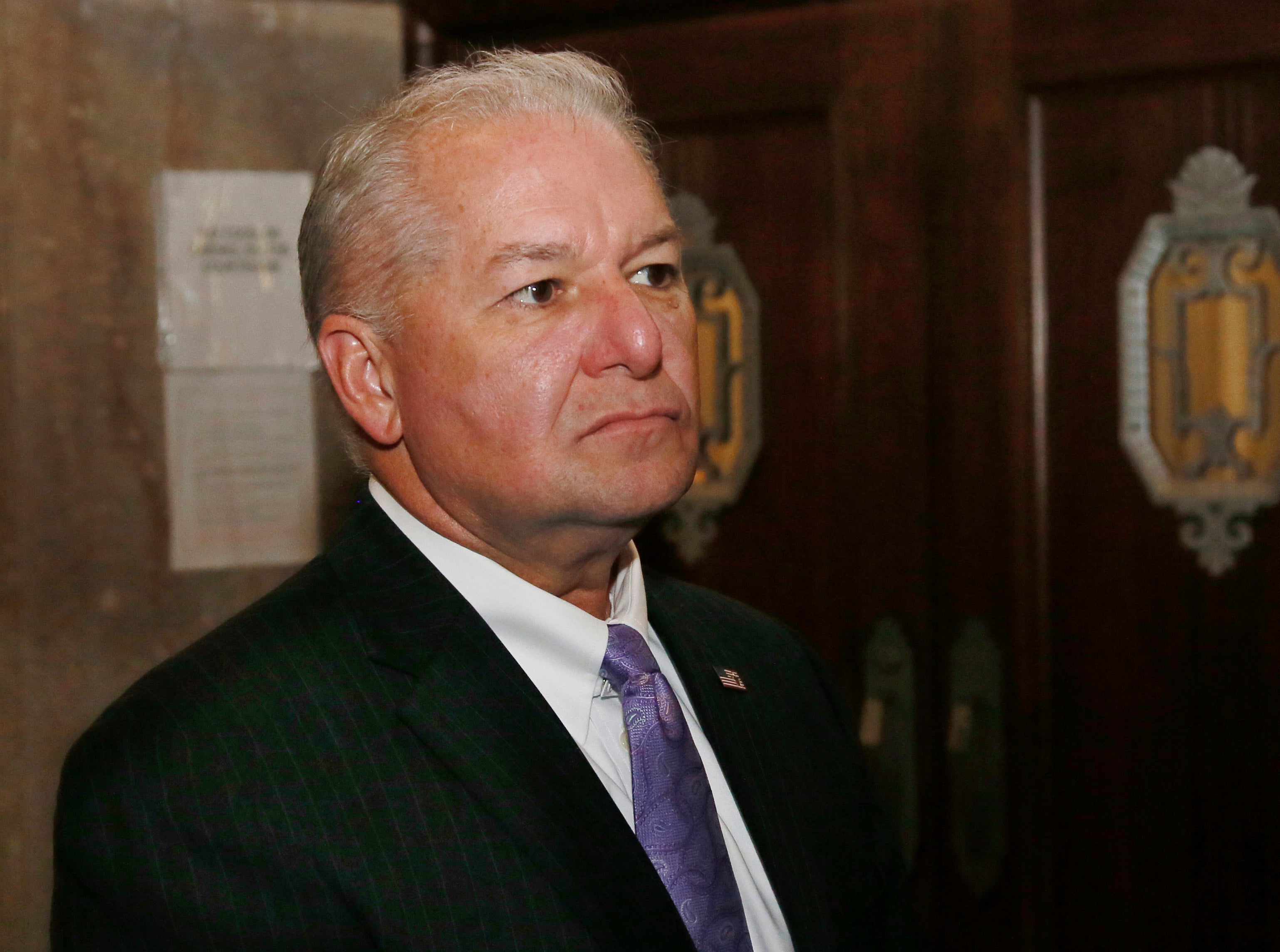Grand jury report criticizes Oklahoma governor, parole board
A newly released grand jury report is highly critical of Gov. Kevin Stitt and the Oklahoma Pardon and Parole Board

Your support helps us to tell the story
From reproductive rights to climate change to Big Tech, The Independent is on the ground when the story is developing. Whether it's investigating the financials of Elon Musk's pro-Trump PAC or producing our latest documentary, 'The A Word', which shines a light on the American women fighting for reproductive rights, we know how important it is to parse out the facts from the messaging.
At such a critical moment in US history, we need reporters on the ground. Your donation allows us to keep sending journalists to speak to both sides of the story.
The Independent is trusted by Americans across the entire political spectrum. And unlike many other quality news outlets, we choose not to lock Americans out of our reporting and analysis with paywalls. We believe quality journalism should be available to everyone, paid for by those who can afford it.
Your support makes all the difference.Oklahoma’s Pardon and Parole Board was so focused on releasing inmates that it cut corners and ignored internal processes that ultimately led to the release of an inmate who was later charged with three counts of first-degree murder, according to a grand jury report released this week.
The final report released Thursday by the Oklahoma County Grand Jury, which was requested in October by Oklahoma County District Attorney David Prater, covered several investigations, including a probe into a Catoosa tag agency that led to felony charges against a sitting state lawmaker and his wife.
The grand jury also described as “grossly improper" a meeting Gov. Kevin Stitt had with a group of people he ultimately appointed to the board during which decisions were made about upcoming votes and about dismissing the agency's former director. The governor appoints three of the five members of the Pardon and Parole Board.
“At the time of this conversation, the individuals had not taken their seats yet, nor had any taken the required oath of office," the grand jury report states. “However, such a meeting clearly violates the spirit of the Open Meetings Act, and clearly rendered the future board less than the independent authority contemplated by the Oklahoma Constitution."
Charlie Hannema, a spokesman for Stitt, said there was nothing improper about the governor ensuring that his appointees are aligned with his vision and described the grand jury process as a “sham" orchestrated by Prater, who chose not to run for reelection.
“The grand jury process was a sham from the beginning and culminated with a report verifying this was little more than an outgoing prosecutor’s latest abuse of the public’s trust to target his opponents," Hannema said in a statement. “Oklahoma law explicitly prohibits grand juries from making allegations that public officials have engaged in misconduct, and it is clear the outgoing prosecutor took advantage of the citizens who served on this grand jury to unwittingly carry out his partisan feud against Governor Stitt and the Pardon and Parole Board.”
The grand jury's probe into the Pardon and Parole Board mostly covered the period from 2019 to mid-2021, and its report noted that things have improved at the agency since its new director took over in 2020.
The report found that Lawrence Anderson, an Oklahoma man who had been released early from prison in January as part of a mass commutation effort and is now charged with three killings, should never have been released.
The report notes Anderson was placed on the commutation docket in error since he was denied in January 2019 and should have had to wait three years under board rules. But he reapplied in August 2019 and placed back on the docket.
“It appears that these three deaths could have been avoided, had the board rules and the applicable law been followed," the report states.
In addition to the three murders committed by Anderson, the grand jury heard evidence related to four other murders allegedly committed by those inmates released as part of a commutation push.
Tom Bates, the director of the Pardon and Parole Board, said he appreciates the work of the grand jury and “looks forward to working with board members and staff in evaluating and implementing the recommendations contained in the report."